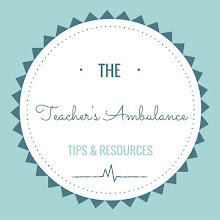I have several favorite warm-ups which can be easily altered and adjusted to your needs. I name them in random order because they are all good.
1. Guess who I am. You need a card for each student. The cards can be with the names of professions, hobbies, crimes, anything you can create or imagine. The procedure is quite simple. You give out all the cards, students can explain their card or even mime one by one. The rest of the group should guess it. I love to do it especially with new groups. Advantage: everyone is practicing speaking and everyone is listening carefully in order to guess.
2. Find someone who... Personally I don't use it very often because it cannot be adapted easily to all kinds of lessons. It has more narrow usage in terms of grammar. Anyway, it can bring some fun into the classroom and help to revise some simple tenses. Another limitation: it can be used only with groups, but not with individual students. It's for you to decide how often to apply it. So you need a card for each student with the tasks and they need to find as many people matching their questions as they can. The tasks can be the same but I wouldn't recommend to do so because the game becomes not interesting in a minute after the start. So my advice: provide different tasks and give time limit for the activity.
3. Describe or comment on a picture, photo, a poster, etc. It may seem a very simple stuff to use. But knowing some small tricks about it you will make it a powerful tool in your hands. It's better to have a picture for each student or for each pair of students. In such a way more people will be engaged in the conversation. Don't make my mistake: I used to give one picture for whole group discussion and usually it didn't work. Stronger students would take all the time and weaker ones would keep silent.
4. Favorite tongue-twisters. There are many websites which can help you to find a good tongue-twister, but make it simple. Students are eager to learn it if they understand the meaning of it. Pre-teach the sound and let students pronounce it several times in different words (surroundings) and then work with tongue-twister.
5. Retelling. Give your students some short stories to read and retell to the rest. Prepare a card with the story for each student and give them some time to prepare. It's better to have explanation or translation of new words on each card. I prefer to use jokes for it. It can help students to relax from the beginning of a class. Advice: you should know your group and understand their sense of humor. Imagine how disappointing it's to tell the joke you don't understand yourself. Students get really shy and they don't want to speak because they think the problem is their lack of knowledge and not the joke itself.
3. Describe or comment on a picture, photo, a poster, etc. It may seem a very simple stuff to use. But knowing some small tricks about it you will make it a powerful tool in your hands. It's better to have a picture for each student or for each pair of students. In such a way more people will be engaged in the conversation. Don't make my mistake: I used to give one picture for whole group discussion and usually it didn't work. Stronger students would take all the time and weaker ones would keep silent.
4. Favorite tongue-twisters. There are many websites which can help you to find a good tongue-twister, but make it simple. Students are eager to learn it if they understand the meaning of it. Pre-teach the sound and let students pronounce it several times in different words (surroundings) and then work with tongue-twister.
5. Retelling. Give your students some short stories to read and retell to the rest. Prepare a card with the story for each student and give them some time to prepare. It's better to have explanation or translation of new words on each card. I prefer to use jokes for it. It can help students to relax from the beginning of a class. Advice: you should know your group and understand their sense of humor. Imagine how disappointing it's to tell the joke you don't understand yourself. Students get really shy and they don't want to speak because they think the problem is their lack of knowledge and not the joke itself.







No comments:
Post a Comment